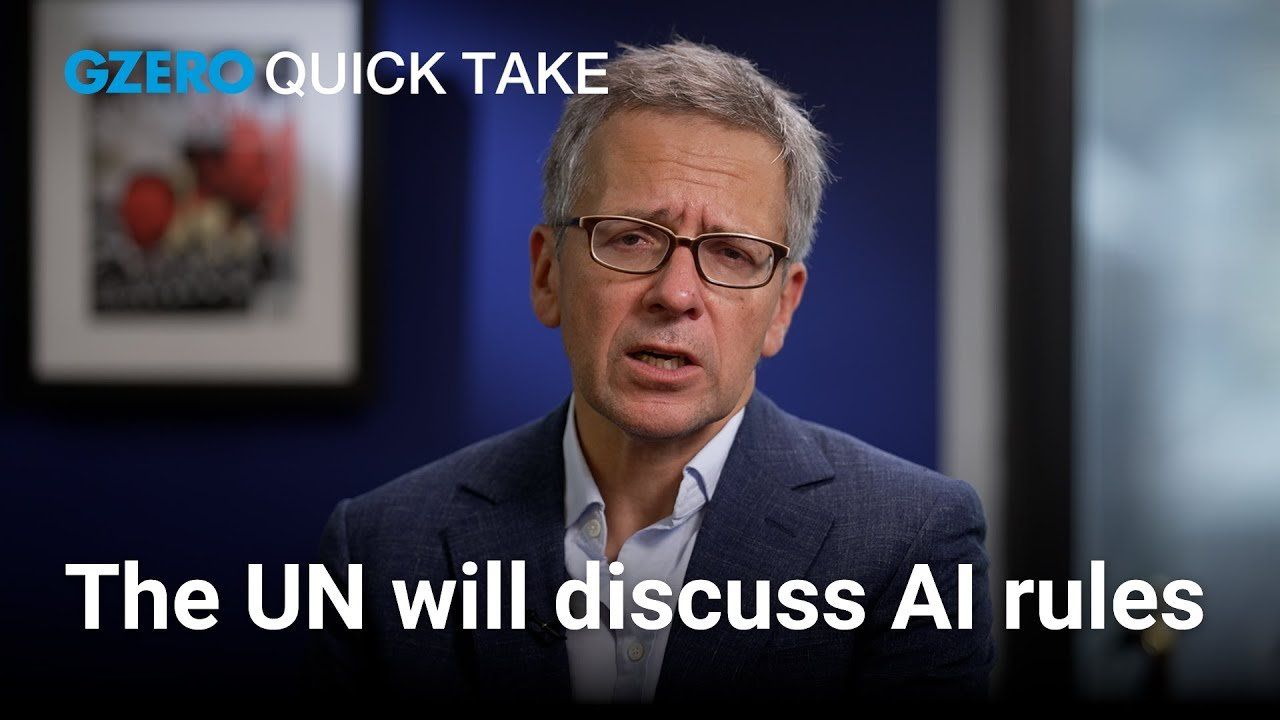
Ian Bremmer's Quick Take: Hi, everybody. Ian Bremmer here. And a Quick Take to kick off your week. I'm in New York. Of course I am, because the United Nations General Assembly high-level meetings are kicking off. They will be all week. And of course, that means incredible amounts of traffic. We can handle that because we've got subway that works and a walkable city.
But what's going to happen this week? Interestingly, I think the most important topic of the week, and it's not because of personal bias, is artificial intelligence. And the reason for that is because, unlike every other topic where people generally know what outcomes they want, they just can't get there. They can't move fast enough. Climate change, for example, ending the Russian war in Ukraine, for example, multilateral finance to support lower developed countries. Moving on the Sustainable Development Goals for human development across the world, which has been slipping with the pandemic and with the Russia war. No, in AI we don't know what people want.
People are trying to understand the space and so bring in world leaders together to have high-level meetings on their beliefs around how to govern AI, what to govern specifically, what the institution should look like, what the priorities should be. Those meetings are the ones I personally think will be most interesting. And the Secretary-General, António Guterres, is very personally focused on it. He has been for several years thinking that post, you know, his efforts on climate change, this is the area that he wants to spend the most time on. The Russia war has made that very challenging in terms of a distraction for everybody at the meeting.
But nonetheless, we're now seeing a significant amount of focus of effort. And I suspect that there'll be a lot of news that comes out of those meetings. Beyond that, we've got President Zelensky in Ukraine, and he, of course, will be here in New York. He'll also be in Washington. He's looking for more support for the counteroffensive, more military aid, which Congress continues to be inclined to provide. Also looking to have better relations with the Global South that has largely sat on the sidelines of this war. And there with the Russians bombing grain and grain infrastructure, a lot of countries that were, you know, basically saying this doesn't apply to me increasingly see that it does. And so, yes, Ukraine's in Europe. Yes, Ukraine's a bunch of white people. Yes, it's true. The developed world doesn't pay as much attention to human rights concerns and invasions and coups that happen in sub-Saharan Africa. But the fact is that this war in Ukraine is causing a lot more hardship for the poorest, the hungriest people in the world.
And that's why what I talked to the Secretary-General a couple of days ago, he said his biggest near-term priority is ending the war. Why? Because until you do that, you're going to have underperformance among the poorest of the world's 8 billion. So that's a little bit of what's going to be discussed this week. I think the G-7 meeting on the sidelines is always interesting, especially because the G-7, the world's wealthy democracies, are more aligned on national security issues than they have been historically.
Not much to be seen from Russia. Foreign Minister Lavrov. His statements are well known. They don't move the needle. And the Chinese foreign minister not here. Why? Because he was in Malta meeting with Jake Sullivan to prepare for the coming Biden-Xi bilateral in November at APEC. Now is traveling to meet with the Russians so that they can prepare for the Xi-Putin meeting coming in a month when Putin travels to China. A lot of focus there, but that means that two of the countries that are most problematic for the United States from a geopolitical perspective, not showing up at a high level here in New York City.
That's it for me. It’s going to be fascinating, it’s going to be busy and I'll talk to you all real soon.